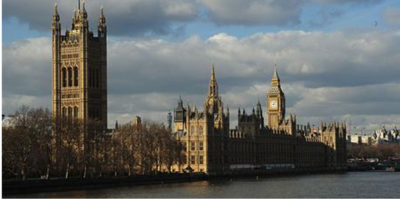News
Latest Lion Aid News
Will the UK sacrifice national and international environment and species protections for commerce?
Sunday 23rd April 2017
|
On 20th April, the UK Parliament resounded with questions from concerned Members of Parliament directed to Therese Coffey, Under-Secretary of State for Environment about what would happen to current EU environmental policies and standards after Brexit. Specifically, MPs asked what would the so-called “Great Repeal Bill” – the free-for-all allowance post Brexit by the UK Conservative government – do to undermine decades of hard-fought positive legislation by many environmental activists? Like - what will remain in the UK of the bans of dangerous insecticides like neonicotinoids that have already caused havoc among important pollinators like bees, endangered butterflies, endangered insectivorous birds and even endangered insectivorous mammals like hedgehogs and bats? Like - what will remain of the UK “protected marine reserves” once UK fishermen are excluded from fishing in waters belonging to the remaining EU nations and will have to seek fish in only those waters belonging to the UK? Like - what will happen to the strict EU standards of water quality in rivers and on beaches once the UK leaves? Like - what will happen to the stringent EU “Habitats” directives ensuring wildlife conservation after Brexit? Also very significantly, what will happen to the current £3.5 billion paid to UK farmers in subsidies by the EU? What will happen when those farmers encounter the brick wall of diminished subsidies and the inability to sell their products to the EU competitively as they could now face tariffs? “British” beef, lamb, poultry, pork, and even milk cold soon become more expensive in the EU market and therefore not competitive than the same products produced by France, Spain, Poland, Germany, etc. As a consequence of Brexit, the UK sadly seems geared to make many shortcuts. At the expense of the environment (pollution, herbicides, insecticides) and animal welfare (cutting all corners to produce cheap products for possible consumption in Asia and the Middle East), as the EU and the Americas are no longer available for competitive trade of agricultural products. After that long preamble (it is a very complicated issue after all), I would like to salute Jeff Smith MP (Manchester, Withington - Labour) for asking some penetrating questions. Equally, kudos to John Spellar MP (Warley – Labour), Chelyl Gillan MP (Chesham and Amersham – Conservative) , Nigel Evans MP (Ribble Valley – Conservative) and Margaret Ferrier MP (Rutherglen and Hamilton West – SNP) and especially Dr. Paul Monaghan (Caithness, Sutherland and Easter Ross - SNP)for asking their highly relevant questions. It was disappointing to read Minister Therese Coffey’s inadequate answers in Parliament. The takeaway conclusion is that Minister Coffey is not engaged in any of the issues and always resorts to Party politics, rhetoric and glib answers to any serious question posed by Members of Parliament, even those of her own Party? Of course, for LionAid, one of the most disappointing (but expected?) answers came to a question by Dr Paul Monaghan MP (Caithness, Sutherland and Easter Ross – SNP) about the much needed stance for the UK to ban lion trophy hunting imports. Minister Coffey could only say this: “I did not quite catch the opening of the hon. Gentleman’s (Dr Monaghan) question, where he referred to something from 2015, but I assure him that …”etc. Does this sound like a considered reply from a Minister “engaged” in the issue? Not to us. Let’s all hope that Brexit will not result in massive environmental backpedalling. Let’s all hope that the UK will do the absolute best to ensure survival of threatened and endangered species nationally and internationally. And that serious questions asked by Members of Parliament will be given serious answers by Ministers…..
Background: 1. “Brexit poses a huge risk to UK wildlife and habitats.” Source: BBC 2. “As a result of the [Brexit] vote, many internal and external implications may arise, including environmental concerns that put Britain at risk for weakened environmental standards and a stifled voice in international environmental law”. Source: Huffington Post 3. “From the ‘red-tape’ slashing desires of the Brexiters to the judgment of green professionals, all indications are for weaker environmental protections.” Source: The Guardian 4. “The UK Government plans to water down regulations surrounding climate change and illegal wildlife trading in an effort to help secure post-Brexit trade, civil service documents have reportedly revealed.” Source: The Independent 5. " Brexit will cost the environment unless Ministers seriously address the consequences for wildlife, water quality, air quality." Source: The Guardian
Picture Credit: Parliamentary copyright images are reproduced with the permission of Parliament |
Posted by Chris Macsween at 14:26
No comments have been posted yet.
Add a new comment
Existing user
New user sign up




